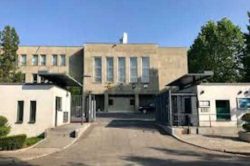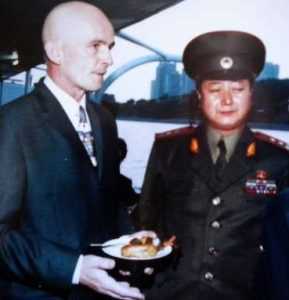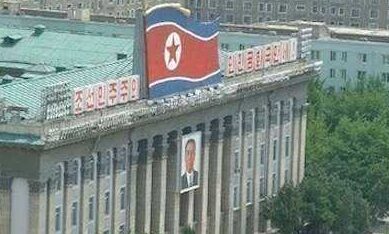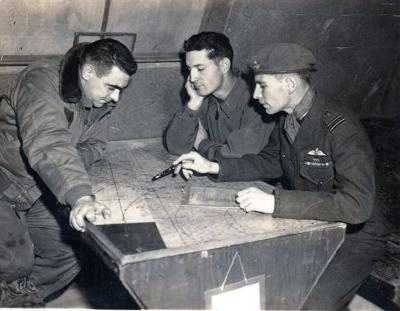North Korea Military Work With British Diplomat relates to a unique situation where a British diplomat had a close working relationship with the North Korean mlitary for a 6 month period would in itself raise more than a few eyebrows. Working for 3 years in North Korea was on the one hand a time of frustration and on the other a time of discovery in this fascinating yet enigmatic country.
Life In North Korea As A Foreigner Surviving 3 Years
Butting heads on a daily basis with the stifling North Korean bureaucracy was always a battle, but occasionally there was a glimmer of achievement and sometimes from the most unlikeliest of sources.
In early 2004, I was contacted at the embassy in Pyongyang by the brother of an RAF pilot who had been shot down in 1952 over North Korea during the Korean war. He said he had full details of the shoot down supplied by eyewitness United States Air Force (USAF) pilots and map coordinates of the site of the crash (which he sent to me) and wished to visit the area to discover the fate of his brother.

The background was that the pilot, Flt Lt Desmond Hinton, who received the Distinguished Flying Cross in World War II for shooting down two Japanese fighters had bailed out of his burning F84e Thunderjet whilst carrying out a strafing mission north east of Pyongyang on 2 January 1952. At the time, Flt Lt Hinton was one of a number of RAF pilots who were attached to and flying with the USAF. Despite enquiries after the war and with no further information as to his fate forthcoming, Flt Lt Hinton was subsequently officially listed as missing in action.
This seemed a daunting request, but nevertheless I submitted it to the North Koreans and having gone through the usual long and tortuous channels I was surprised to receive an invitation to a meeting with senior North Korean military officers to discuss the request. Soon after therefore, it was with some degree of trepidation that I and my interpreter set off to meet these senior officers at a large military base on the outskirts of Pyongyang.
Driving into the base, we stopped at the entrance guard house and I was told to leave my diplomatic vehicle parked there. Then my interpreter and I climbed into a small military vehicle with an officer who my interpreter told me would be our liaison officer for the visit.
The base was huge. We drove past ranks of tanks, armoured vehicles and lorries which appeared to be in pristine (and highly polished) condition. I did learn later that this base was one of several in the Pyongyang garrison that supplied vehicles for the massed televised parades.
A short while later we pulled up outside a large office building. Our liaison officer led us in and up the stairs to a large conference room where sat several high ranking officers. There were also some junior officers milling around as well as a couple of shady looking civilians who never took their eyes off me for the whole meeting. Very disconcerting.
Some commands were rapped out in Korean and everyone sat down. I then outlined my request to them and also provided them with all the relevant information that had been sent to me from the UK. They listened politely. They were very courteous and the atmosphere was more relaxed than I had anticipated. When I had finished my spiel and before they responded to my request, tea was brought in and they all lit up cigarettes. As I drank my tea, they all began a long conversation amongst themselves.
Finally, they said they would investigate this case and get back in touch. So thinking that this was an end to the proceedings, I stood up preparing to leave, but surprisingly no, it was not quite the end. They invited me to have lunch with them, which took me completely off guard.
Before I could respond, another command was rapped out and a series of orderlies wheeled in trollies containing a cold buffet and drink. The buffet was well prepared but the only downside was at the end of the meeting there were several toasts which meant imbibing several shots of the lethal North Korean Soju the after effects of which I did in due course suffer!
So the meeting finally came to an end. I thought that after this first meeting, that would be the end of it. I would get the usual reply back saying this request was not possible to facilitate. The Korean War was something that the North Koreans revered. Museums full of captured allied equipment, films, memorials, statues and posters depicting their glorious victory abounded everywhere. So requesting assistance in finding a hated enemy, albeit a fallen one, was perhaps a request too far.
But surprisingly, no.
Against all expectations, they did get back to me shortly afterwards with some quite startling news. Based on the information I had given them, they had identified the crash site which was close to a village called Kuso-ri/Gueso-ri situated near to what is currently the main airport for Pyongyang.
They had spoken with villagers including two elders who had witnessed the shoot down. Flt Lt Hinton had indeed ejected but his parachute failed and he was killed on impact. The villagers had then interred him in an unmarked grave in a field adjacent to the village. This spot had been identified and human bones and fragments of uniform and aircraft were also uncovered. This scenario is somewhat similar to my previous post Tragic RAF Pilot’s Secret Grave Discovered In Albania

This news then led over the next six months to a long series of meetings, usually weekly either at Army HQ in Pyongyang, the crash site or at a military base on the outskirts of the city chaired on the military side by Senior Colonel Kwak Chol-hui who was to be my main point of contact for this project. I am glad to report that the two shady civilians from our first meeting never did make a reappearance.
The Colonel who would later go on to be promoted to Major General was responsible throughout the negotiations for arranging visits to the site, meetings with the two surviving eyewitnesses and agreeing that Flt Lt Hinton’s brother would be fast tracked for a visa and allowed to visit the DPRK site to pay his final respects to his brother.
True to their word, Flt Lt Hinton’s brother was granted his visa and permitted to visit the village. At a meeting we had with the military, he was offered the choice of having his brother’s remains repatriated to the south via Panmunjon or re-buried on the outskirts of the village. He chose the latter. Therefore, the military re-buried his remains in a properly marked grave and on the final day of his visit, he was part of a small, brief ceremony attended by members of the British Embassy, North Korean military and villagers.
Despite my requests, the North Koreans had refused to allow me to obtain a properly inscribed headstone from the Commonwealth War Graves Commission, so a simple marker was used instead. Overall, it was a small victory but did give some form of closure to the family of Flt Lt Hinton.
As mentioned above, I met Colonel Kwak Chol-hui (pictured above with me at a Queens Birthday Party celebration in Pyongyang) and his team on many occasions over that 6 month period. As well as working on the Hinton project, he also eased the process of enabling me to take the very rare numbers of visitors we got down to the DMZ at Panmunjon as part of their “North Korean experience”. The other was the USS Pueblo where the military arranged private tours for me (Pueblo post to follow).
At Panmunjon, when I took visitors down to view the DMZ, we were always hosted by the military who would lay on briefings and guides for our visitors as well as a lunch afterwards. I could always see the look of bewilderment on the faces of the South Korean border guards and US military standing a few feet away on the southern side of the demarcation line wondering who these foreigners were on the other side looking a tad too cosy with North Korean officers!
All of the above pre-supposes that this was the happy ending and finality for everyone involved. This was not to be the case as several years later a cruel deception was exposed.

